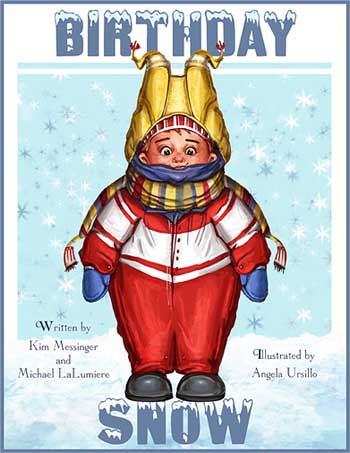Hello there:
We've been sending out inquiries to authors/others about writing a review of my new book "Why Is Crater Lake So Blue?'' So far several have agreed.
But I made a "professional'' mad doing that. Then she read the blog and got really mad. Then she read the first chapter and was outraged. Anyway her post below is to show the added burden we have in self-publishing.
For a more thoughtful review of the book go here: http://www.whyiscraterlakesoblue.com/reviews.htm
Dear Michael,
Your publicist contacted many of our clients requesting an endorsement of your forthcoming novel. I suspect she didn't notice that most of their email addresses were the same, mine, so several came directly to me. Others were forwarded by the author as that is standard procedure. I screen the endorsement requests. Anyway, I just thought I'd let you know directly that this blanket emailing isn't really a very good way to get endorsements from successful authors. It doesn't involve carefully screening which authors might be a good match for your book, and most endorsements are given because of some personal connection between authors. Contrary to your blog comments regarding endorsements it is not vitally necessary to get author endorsements, It is, however, paramount that one gets good, and relevant endorsements from known authors. To have glowing endorsements from other self published authors that booksellers, wholesalers, and media have never heard of doesn't do much good in an age when anyone can get published. Also, your blog mentioned the odds of getting published in the traditional model is 10,000 to 1. I'm afraid I have to disagree with you on that one also. Along with having a book marketing company I also act as a manuscript scout for a number of good agents. There may be several reasons why some really good books don't get picked up, usually having something to do with cross-genre placement that makes marketing the book challenging, but I've found that if a book is truly good, it will find a home with a traditional publisher 90% of the time. I've referred 11 manuscripts to agents, 10 were picked up by the agents, and 9 of those have been bought by publishers paying $25,000 to more than $100,000 in advance. By far the fast majority of fiction that can't be placed with a publisher is because it isn't good enough. However, most authors have a hard time accepting that their work isn't publishable (I do manuscript development and judge literary contests as well), and most authors only get feedback on their work from people they know in some way or another, and few people are willing to say, "This just isn't good enough".
Though we seldom work with self-published books and I rarely consider them for endorsements, I'm always open to taking a look because I know there can always be the gem hiding with the stones. I did agree to take a look at your book to see if it was something I felt one of our authors would want to read and possibly endorse. I'm afraid I found it lacking in quality, style, editing and structure. Therefore, I will not be forwarding it to our clients for an endorsement. Of course, this is only my professional opinion and I'm completely used to such emails being angrily delete. I imagine if it was a hard copy you would be assertively balling it up and looking to score with a toss to your waste basket.
I am taking the time to write to you for several reasons: I love words and stories and books, which is why I started Terra Communications. I have great empathy for writers and appreciate your passion and struggles, and I'm from Chiloquin, the gateway to Crater Lake and I was in high school there in 1975, the year the Park was closed. Obviously I felt a kinship to you and your book so I have taken the time to read and comment on it. Also, I am naturally protective of my home turf and take a particular interest in how writers portray it.
Your book certainly has some potential and if you can get the CLN Park folks to sell it at the gift shop you will probably sell some copies. But when writing so closely about a true situation and real places it is imperative that the facts be accurate since many of the people who read it will be from Oregon or visitors to the Park, therefore familiar with the area. Aside from the lackluster tone of the book there are 5 factual inaccuracies in the first chapter alone. If you want to have Hwy. 97 going west, something it doesn't ever do, then use a fictional highway number as well as fictional direction. If you want to mention that the landscape consists of four types, one being Doug firs, then don't call them pines throughout the rest of the chapter. And so on. This immediately creates a distrust in the reader who might be familiar with the place and if ones fiction isn't believable, it generally isn't very readable.
I hope you will accept my input in the kind spirit that it is intended. I wish you good luck with your novel.
Best,
Dawn G. StuartTerra Communications, Inc.1306 NE 8th St. Bend, OR 97701541-318-6288



